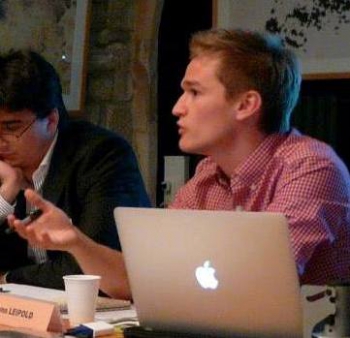
Round 4 in the Fight to Keep Corbyn
The Parliamentary Labour Party (PLP) is currently engaged in an ongoing struggle with its leader, Jeremy Corbyn. In a series of exchanges, my colleague, Blake Ewing, and I engage in a debate over whether he should stay or go. Ewing has taken the time to reply to my response to his original piece. There is disagreement between on us on quite a number of fronts, including on our fundamental political commitments. I think the most productive approach, is to summarise what I take to be his three most important arguments and offer my response. So here goes. Ewing disputes my claim over Corbyn’s support in the Labour Party arguing ‘that 81 per cent of his PLP; not to mention all Labour MEPs, hundreds of Councilors, …

Keep Corbyn: A Reply to Alexander Ewing
Last night I attended an emergency local meeting of Momentum (the Labour Party focused organisation set up to defend Jeremy Corbyn’s leadership). More than fifty people crowded into a small meeting room of the South Oxford Community Centre to express their indignation at the actions of the Parliamentary Labour Party (PLP). Like every Momentum meeting I’ve attended, this was done in tones so polite and reserved that you’d have hardly guessed that we were in the midst of the most profound political and constitutional crisis of the country in at least a generation. Though the group would have had every right to storm and shout, they instead expressed their demands with dignity and calm resolve. For someone who did not …

What can republicanism offer the left?
This article was originally published at Justice Everywhere. When you tell people that you work on republicanism, you are often met by a concerned look. You then have to rush to explain that by ‘republicanism’ you, of course, do not mean the party of Trump and Palin. Nor – you then have to add – do you only mean that you take a particular dislike to Elizabeth Windsor. This public understanding of republicanism looks set to only get worse, with the French centre-right UMP party, last year, successfully renaming itself Les Républicains. The prospects for recovering republicanism for leftist politics might therefore not seem particularly promising. The label ‘republican’ might simply be too poisoned by its associations with right-wing parties or too easily …

Anarchists and Republicans: Bedfellows?
In 1797 two of the foremost radical social critics of their day Mary Wollstonecraft and William Godwin married in order to legitimate their unborn child. Both opposed the institution of marriage but they hoped to avoid the scandal and prejudice that had accompanied Wollstonecraft’s first illegitimate child. Their brief relationship was one of the happiest periods in their often tumultuous lives but was tragically cut short by Wollstonecraft’s death in childbirth.[i] Wollstonecraft’s powerful feminist critique of the patriarchal beliefs and institutions of her day drew on many republican themes, extending the traditional republican concern with political domination to the social domination of husbands over wives.[ii] Godwin’s philosophical rejection of external authority and his exposition of a decentralized voluntary society free from the state has led many to classify him as an early anarchist thinker.[iii] If their marriage could be considered the highpoint of relations between republicanism and anarchism, the two traditions have since followed very different ideological and political paths. In what follows I consider what, if any, potential overlap there is today between these two often neglected political theories.










